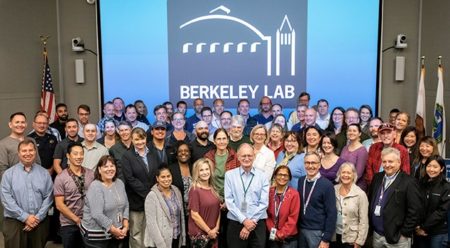 In early November, Berkeley Lab Director, Mike Witherell emailed all scientific and engineering staff with a message about our stewardship responsibilities as members of the Berkeley Lab community.
In early November, Berkeley Lab Director, Mike Witherell emailed all scientific and engineering staff with a message about our stewardship responsibilities as members of the Berkeley Lab community.
As the Lab’s Stewardship website states, “Lawrence Berkeley National Laboratory is committed to conducting groundbreaking research in science and technology, with a special focus on national priorities. As Lab leaders and employees, we are charged to serve as stewards of this enterprise, responsible for ensuring that it remains a valuable national asset. Our stewardship responsibilities extend to the Lab’s research, people and resources.”
Director Witherell’s email specifically addresses the people who make up our research and operation teams and each of our roles in making IDEA – inclusion, diversity, equity, and accountability – an integral part of the work we do.
From: Mike Witherell
Date: Thu, Nov 7, 2019
Subject: Special stewardship responsibilities of the Lab’s Scientists & Engineers
Dear Colleagues,
I am writing to you as the group of career scientists who represent the scientific leadership of Berkeley Lab. Our value to the nation is primarily due to the great research that you plan, propose, carry out, and publish. I consider it a privilege to be leading this Lab, which does world-leading research on such a broad range of science and technology. I hear from many of you how proud you are to be able to do your research here.
I also would like you to consider your special responsibility for the stewardship of our Lab. This responsibility includes taking care of the research, people, and resources entrusted to us in a way that ensures that this remains a great laboratory. One example of this stewardship is your role in IDEA – inclusion, diversity, equity, and accountability – which we have been talking a great deal about over the last year. As we listen to our community from an IDEA perspective, one theme that emerges is that those of us who are not scientific leaders – people working in business and finance, project engineering and management, human resources, facilities, and administration – can feel that they are treated as of secondary importance to the Lab.
We have an extremely talented group of people working in all of these areas and they are here, at least in part, because of their dedication to our mission of science in the public service. I believe that the exceptional response to the recent power shutoff demonstrated how much the Lab benefits from an approach of one Lab, working together.
All of us whose research is made possible by their efforts should make sure that we are communicating with them in a way that values what they do and how important they are to our success. A culture of inclusion is key to attracting and engaging the brightest minds and furthering our record of scientific excellence and groundbreaking innovations. As research leaders we need to make sure that culture includes respect and appreciation for everyone who works at this Lab.
Thanks for your contributions to our success.
Best regards,
Mike
